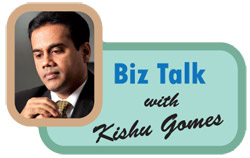 Making people think and act Making people think and act
Business success
depends on team performance not on individual performance. The real
reason for creating teams is the hope that the output from the
collective effort would be significantly better than what each person
can accomplish separately.
There are unique and distinct traits that are specific to each person
based on their background, life and job experiences and social
influences.
The traits which are personality attributes, thinking approaches,
work styles and behavioural patterns, have an impact on the performance
of a person in team situations as well. The traits work positively and
negatively in an organisational environment. Conflicts at times and
adding new dimension into the team. Conflicts cost money but new
dimensions promote better quality judgment.
Business success depends on team performance not on individual
performance. The real reason for creating teams is the hope that the
output from the collective effort would be significantly better than
what each person can accomplish separately.
Team members are, at a fundamental level, short-listed for their
knowledge, skills and expertise. But one has to also take into
consideration the personality traits and thinking approaches necessary
for a task.
Take for example an aggressive go getter versus passive follower
working together or risk-taking approach versus cautious and
conservative approach in a team situation.
Cultural match
It is generally assumed that a successful relationship between an
person and an organisation is based on a shared foundation of beliefs
and behaviour.
Similar beliefs and ways of working usually encourage communication
and tend to support the working relationship, allowing synergies to
emerge. In contrast, a high level of dissimilarity usually needs a high
consumption of adaptive energy.
A higher cultural match suggests the potential for a more satisfying
interaction for the person and organisation. In most situations there
are some ways in which people will behave consistently. Recognise the
consistent patterns in yourself and others, so you increase your
effectiveness and ensure you keep the same problems from repeating.
Differences
Two people with different wave lengths may find it difficult to
communicate effectively and this can be damaging in business. Learn to
recognise different patterns of behaviour in your team members and work
with these differences to maximise performance.
For example, when you delegate a task to someone who favours
'options' to achieve goals, as opposed to a set procedure, avoid telling
them exactly what to do. They may feel you do not trust them. Tell them
the goal and let them decide on the best way of achieving it.
Try to differentiate between people with different personalities in
your team. Improve performance by ensuring that people characteristics
fit their job specifications. See how every mental habit can be a
strength.
Learn to recognise patterns in yourself and in others. Prevent
problems or conflicts by understanding your colleagues behaviour
patterns. |

